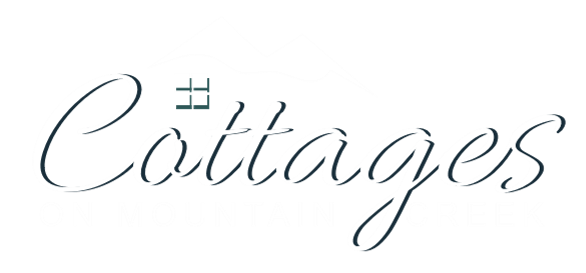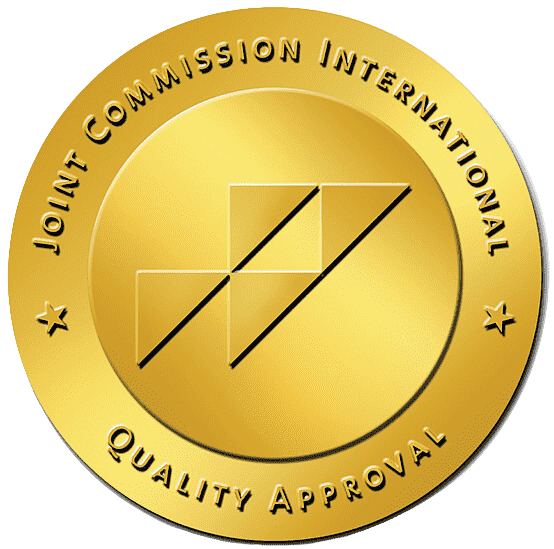Understanding Mental Health Treatment
At Cottages on Mountain Creek, we believe understanding mental health treatment is vital for effective recovery. This section delves into the benefits of psychotherapy and the role of medication in mental health care.
Psychotherapy and its Benefits
Psychotherapy, often referred to as talk therapy, explores thoughts, feelings, and behaviors to improve an individual’s well-being. We find it to be most effective when paired with medication. The therapeutic process may include:
- Cognitive Behavioral Therapy (CBT): Focuses on changing negative thought patterns.
- Dialectical Behavior Therapy (DBT): Combines CBT with mindfulness strategies.
- Interpersonal Therapy (IPT): Addresses interpersonal issues and social functioning.
These approaches can significantly enhance recovery by providing tools to manage symptoms and improve overall mental health.
| Therapy Type | Primary Focus | Typical Duration |
|---|---|---|
| CBT | Negative thought patterns | 12-20 weeks |
| DBT | Emotion regulation | Ongoing |
| IPT | Interpersonal issues | 12-16 weeks |
Explore different therapy options available at our facility.
The Role of Medication
Medication is another cornerstone of mental health treatment. While not a cure, medications can manage and alleviate symptoms, facilitating better engagement in psychotherapy.
Common Medications:
- Antidepressants: Used for depressive and anxiety disorders. Typically take 4-8 weeks to work. Common side effects include upset stomach, headache, or sexual dysfunction.
- Anti-Anxiety Medications: Reduce anxiety symptoms like panic attacks. Benzodiazepines and beta-blockers are common. Must be monitored to avoid dependence (NIMH).
- Antipsychotic Medications: Treat conditions with loss of reality, like psychosis. Often used for schizophrenia, bipolar disorder, or severe depression.
| Medication Type | Common Use | Side Effects |
|---|---|---|
| Antidepressants | Depressive and Anxiety Disorders | Upset Stomach, Headache |
| Anti-Anxiety | Panic Attacks, Intense Fear | Dependence Risk |
| Antipsychotics | Schizophrenia, Bipolar | Drowsiness, Weight Gain |
For those considering medication, pairing it with our comprehensive psychotherapy services can offer a balanced approach to treatment. Visit our sections on dual diagnosis treatment and substance abuse treatment for more information on integrative care.
Through a combination of psychotherapy and medication, we aim to provide a holistic approach to mental health treatment, enhancing the journey to recovery for all our patients.
Diverse Approaches to Treatment
Case Management Support
Navigating the complexities of mental health treatment can be overwhelming. At Cottages on Mountain Creek, we offer case management support to help individuals coordinate essential services. Our experienced case managers assist with the assessment, planning, and implementation of strategies tailored to facilitate recovery. This comprehensive support ensures that each person’s unique needs are met, providing a seamless path towards wellness.
| Service Areas | Benefits |
|---|---|
| Assessment | Identifying individual needs and strengths |
| Planning | Developing a personalized treatment plan |
| Implementation | Coordinating necessary services and resources |
For more information on our various treatment options, visit our page on behavioral health treatment.
Importance of Hospitalization
In certain situations, hospitalization becomes necessary to provide intensive care and monitoring. At Cottages on Mountain Creek, we understand the critical importance of such interventions. Hospitalization allows for accurate diagnosis, medication adjustments, and close monitoring of individuals whose mental health condition may have temporarily worsened. Our dedicated healthcare team ensures that individuals receive the highest standard of care in a safe and supportive environment.
Explore our PHP treatment and IOP treatment options to find suitable programs that can provide intensive support without the need for hospitalization.
Advocacy Through Support Groups
Support groups play a vital role in the mental health recovery process. At Cottages on Mountain Creek, we encourage participation in support groups, which are comprised of individuals who have experienced similar mental health issues. These groups guide members towards the common goal of recovery, offering a sense of community and shared understanding. Through these groups, individuals can gain valuable insights, coping strategies, and emotional support.
| Support Group Benefits | Description |
|---|---|
| Emotional Support | Providing a safe space to share experiences |
| Shared Understanding | Connecting with peers who have faced similar challenges |
| Coping Strategies | Learning new ways to manage symptoms |
Learn more about how support groups can aid in mental health recovery by visiting our day programming and residential treatment pages.
By providing diverse approaches to mental health treatment, we at Cottages on Mountain Creek strive to meet the varied needs of our clients. These approaches, from case management to advocacy through support groups, ensure a holistic path to recovery. For those considering different levels of care, explore our transitional independent living program for additional support.
Breaking the Stigma
Common Mental Health Conditions
Mental health conditions are prevalent, affecting a significant portion of the population. Some of the most common conditions include depression, anxiety, and bipolar disorder, which can interfere with thoughts, feelings, and behaviors. Recognizing these conditions and understanding that they are treatable is the first step towards better mental health.
- Depression: A mood disorder causing persistent feelings of sadness and loss of interest.
- Anxiety: Characterized by excessive worry, nervousness, or fear.
- Bipolar Disorder: A condition that causes extreme mood swings, including emotional highs (mania) and lows (depression).
Overcoming Barriers to Seeking Help
The stigma surrounding mental health conditions often prevents individuals from seeking the help they need. This stigma arises from misconceptions and fear of judgment, causing individuals to worry about what others may think. Such barriers can exacerbate mental health conditions and, in severe cases, lead to life-threatening situations.
It’s crucial to foster an environment where individuals feel safe to speak up about their mental health and seek mental health treatment. Healthcare professionals, educators, and advocacy groups play a vital role in encouraging these discussions and promoting a compassionate approach to mental health care.
Resources for Mental Health Support
Navigating your path to recovery often requires access to reliable resources and support networks. Numerous organizations provide valuable information and assistance to individuals experiencing mental health issues. Here are some key resources:
- Local Organizations: Many local organizations offer behavioral health treatment and supportive services.
- National Institutes of Health (NIH): Offers extensive information on mental disorders and treatment options.
- MedlinePlus: Provides comprehensive details on a variety of mental health conditions.
Accessing these resources can help individuals understand their conditions better and find the appropriate treatment programs such as PHP treatment, IOP treatment, and residential treatment.
| Mental Health Resource | Description |
|---|---|
| National Institutes of Health (NIH) | Information on mental health disorders and treatment options |
| Local Organizations | Provide behavioral health treatment and day programming |
| MedlinePlus | Comprehensive details on mental health conditions |
For those in need of mental health services, exploring options like the transitional independent living program may also be beneficial. Breaking the stigma and accessing the right resources is essential for fostering a supportive and understanding community.
By increasing awareness and providing support, we can collectively overcome the barriers to seeking help and ensure that no one feels isolated in their journey toward mental wellness.
Optimizing Therapy Outcomes
Understanding Therapy Options
At Cottages on Mountain Creek, we recognize the importance of providing a range of mental health treatment options to suit the unique needs of each individual. Therapy sessions can vary in duration depending on the individual’s situation and typically occur weekly for about 50 minutes per session.
There are several therapy options available:
| Therapy Type | Duration | Focus |
|---|---|---|
| Short-term Therapy | Weeks to Months | Immediate challenges |
| Long-term Therapy | Months to Years | Longstanding and complex issues |
The goals of treatment and the duration and frequency of sessions are discussed collaboratively between the patient and therapist. For more insights, visit our page on behavioral health treatment and residential treatment.
Collaborative Therapeutic Relationship
A successful therapy outcome depends significantly on the collaboration between the individual seeking treatment and the therapist. Actively participating in therapy sessions can enhance the effectiveness of treatment. This includes setting realistic goals, being open and honest during sessions, and consistently applying learned coping strategies and techniques.
| Key Factors | Impact |
|---|---|
| Active Participation | Enhances treatment effectiveness |
| Open Communication | Builds trust and understanding |
| Consistent Application | Reinforces coping strategies |
Our approach focuses on fostering a supportive and understanding environment, encouraging individuals to express their thoughts, behaviors, symptoms, and stresses openly. By developing a strong therapeutic alliance, individuals can achieve better self-awareness and forge stronger relationships.
Effectiveness and Evolution of Therapy
The effectiveness of therapy and its evolution over time are critical aspects of mental health treatment. Psychotherapy can help individuals deal with thoughts, behaviors, symptoms, stresses, goals, and past experiences that promote recovery. It can offer an emotional release and a sense of being understood and supported, aiding in the development of coping skills.
| Benefits of Therapy | Description |
|---|---|
| Emotional Release | Provides a sense of being understood |
| Coping Skills | Helps develop strategies to manage stress |
| Self-awareness | Enhances understanding of oneself |
Our therapy options are designed to evolve based on ongoing assessments and feedback, ensuring that they remain aligned with the individual’s progress and changing needs. For specialized care, consider our dual diagnosis treatment and substance abuse treatment programs, which offer integrated approaches to recovery.
By understanding the different therapy options, fostering a collaborative therapeutic relationship, and continuously evolving our treatment methods, Cottages on Mountain Creek aims to optimize therapy outcomes for all our clients. Explore more about our services, including php treatment, iop treatment, day programming, and transitional independent living program, on our website.






